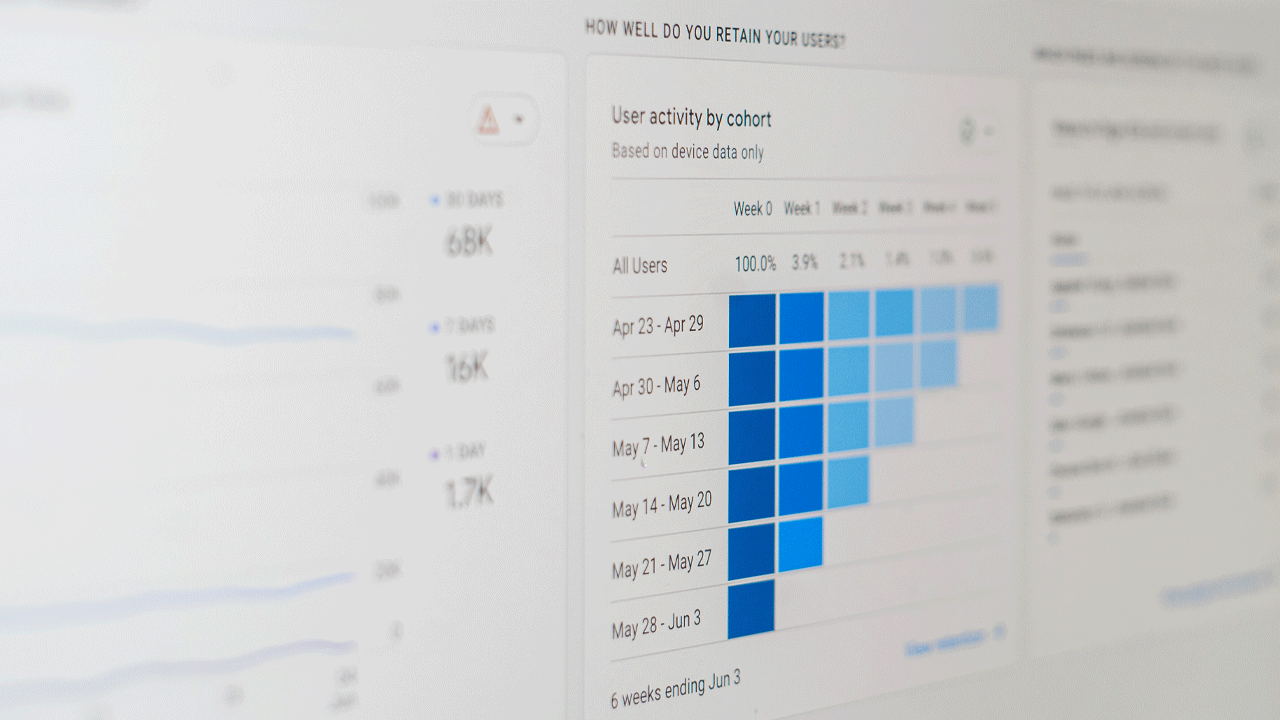In the rapidly evolving digital landscape, securing a top spot in search engine rankings has become a necessity for businesses aiming to stay ahead of the competition. But how can one ensure their website doesn’t get lost in the vast sea of online content? The answer lies in effective Search Engine Optimization (SEO) strategies. This article will delve into the intricacies of SEO, providing you with ten proven strategies to elevate your website’s ranking. We’ll explore the critical role of keyword research, the subtle art of on-page SEO, and the undeniable influence of high-quality content. We’ll also discuss the significance of off-page SEO techniques and the increasing importance of mobile optimization in today’s mobile-first world. Ever wondered how social media can contribute to your SEO efforts? Or how your website’s speed and user experience can impact your search engine rankings? We’ll unravel these aspects too. So, are you ready to unlock the full potential of SEO and propel your website to the top of search engine rankings? Let’s embark on this enlightening journey together.
1. Understanding the Importance of Keyword Research in SEO
One cannot overstate the significance of keyword research in the realm of SEO. It serves as the foundation upon which successful SEO strategies are built. By identifying the right keywords, you can understand better what your audience is searching for, thus tailoring your content to meet their needs. This, in turn, increases your website’s visibility, driving more organic traffic and improving your search engine rankings. However, it’s not just about finding the most popular keywords. It’s about finding the most relevant keywords for your content and audience. This is where the real power of keyword research lies, in its ability to help you tap into the undefined potential of your SEO strategy.
2. Utilizing On-Page SEO Techniques for Better Rankings
When it comes to improving your website’s ranking, on-page SEO techniques are indispensable. These techniques involve optimizing individual webpages to rank higher and earn more relevant traffic in search engines. It’s not just about keyword placement or attractive meta descriptions, it’s about providing quality content that is useful to your audience. This includes ensuring that your website is easy to navigate, has a responsive design, and loads quickly. These factors significantly influence how search engines rank your website.
Furthermore, on-page SEO also involves optimizing your headlines, HTML tags (title, meta, and header), and images. It also means ensuring that your website has a high level of expertise, authoritativeness, and trustworthiness (E-A-T). By implementing these techniques, you can create a strong foundation for your website’s visibility in search engine results. In conclusion, on-page SEO is a powerful tool that, when used correctly, can significantly boost your website’s ranking and overall online presence.
3. The Power of Quality Content in SEO Strategy
Quality content is the backbone of any successful SEO strategy. It’s not just about stuffing your website with keywords, but creating content that is valuable and engaging for your audience. Quality content can help to improve your website’s visibility, increase your search engine rankings, and attract more visitors to your site. It’s a powerful tool that can help to boost your website’s SEO performance and drive more traffic to your site.
Consider the following comparison table that illustrates the impact of quality content on SEO:
| SEO Factor | Without Quality Content | With Quality Content |
|---|---|---|
| Website Traffic | Low | High |
| Search Engine Ranking | Poor | Good |
| Visitor Engagement | Low | High |
| Conversion Rate | Low | High |
This table clearly shows the positive impact of quality content on various SEO factors.
Creating quality content is not a one-time task, but a continuous process. It involves understanding your audience, researching relevant topics, creating engaging content, and updating it regularly. Consistently producing high-quality content can help to establish your website as a trusted source of information, attract more visitors, and improve your search engine rankings. So, invest time and effort in creating quality content, and watch your website’s SEO performance soar.
4. Leveraging Off-Page SEO to Enhance Website Visibility
Off-page SEO is a powerful tool that can significantly boost your website’s visibility. Backlinks, social media marketing, and guest blogging are some of the most effective off-page SEO strategies. These techniques not only increase your website’s exposure but also enhance its credibility and trustworthiness. For instance, high-quality backlinks from reputable websites signal to search engines that your website is a valuable resource, thus improving its ranking.
Consider the following comparison table that illustrates the impact of different off-page SEO strategies on website visibility:
| Off-Page SEO Strategy | Impact on Website Visibility |
|---|---|
| High-quality backlinks | Increases website credibility and improves search engine ranking |
| Social media marketing | Boosts website exposure and drives traffic |
| Guest blogging | Enhances website authority and attracts a wider audience |
However, it’s crucial to remember that off-page SEO is not a quick fix. It requires consistent effort and strategic planning. Building a strong network of high-quality backlinks, for example, takes time and requires creating valuable content that others want to link to. Similarly, effective social media marketing involves engaging with your audience regularly and providing them with content that they find interesting and useful. Despite the challenges, the benefits of off-page SEO make it an essential component of any successful SEO strategy.
5. The Role of Mobile Optimization in SEO
With the increasing reliance on smartphones for internet access, mobile optimization has become a critical aspect of SEO. It is no longer an optional strategy but a mandatory one for businesses aiming to improve their website’s visibility and ranking. Google’s mobile-first indexing, where the search engine primarily uses the mobile version of a website for indexing and ranking, further underscores the importance of mobile optimization.
Mobile optimization ensures that your website delivers an excellent user experience on mobile devices. This includes aspects like fast loading speed, easy navigation, and responsive design that adjusts to different screen sizes. A mobile-optimized website not only helps in retaining the existing users but also attracts new ones, thereby increasing the overall traffic and improving the SEO ranking.
In conclusion, mobile optimization plays a pivotal role in SEO. It is a key factor that search engines consider while determining the ranking of a website. Therefore, businesses must prioritize mobile optimization to ensure their website is easily accessible on all devices, which in turn will boost their SEO ranking. Remember, a mobile-optimized website is no longer a luxury, but a necessity in today’s digital age.
6. Harnessing the Potential of Social Media for SEO
Exploiting the power of social media platforms can significantly improve your SEO efforts. Facebook, Twitter, Instagram, LinkedIn, and Pinterest are among the top social media platforms that can help you increase your website’s visibility. These platforms allow you to share your content with a broader audience, thereby increasing your website’s traffic. For instance, a well-optimized post on Facebook or Twitter can drive a substantial amount of traffic to your website, improving its SEO ranking.
Consider the following comparison table that shows the impact of different social media platforms on website traffic:
| Social Media Platform | Percentage of Website Traffic |
|---|---|
| 65% | |
| 20% | |
| 10% | |
| 5% |
This data clearly shows that Facebook is the most effective platform for driving traffic to your website, followed by Twitter and Instagram.
Furthermore, social media platforms are also excellent for building high-quality backlinks. When your content is shared on social media, it increases the chances of other websites linking back to your content. These backlinks are crucial for SEO as they signal to search engines that your content is valuable and relevant. Backlinks from high-authority websites can significantly improve your website’s SEO ranking. Therefore, it’s essential to create shareable content and encourage your followers to share it on their social media profiles.
7. The Impact of Website Speed and User Experience on SEO Rankings
Website speed and user experience are two critical factors that significantly influence SEO rankings. A slow-loading website can frustrate users, leading to a high bounce rate, which can negatively impact your SEO rankings. On the other hand, a fast, user-friendly website can engage users, encouraging them to stay longer and interact more with your content, which can boost your SEO rankings. Here are some key points to consider:
- Website speed: Google considers website speed as a ranking factor. A slow website can lead to a poor user experience, resulting in lower SEO rankings. Therefore, it’s crucial to optimize your website for speed by compressing images, enabling browser caching, and minimizing HTTP requests.
- User experience: A website that is easy to navigate and provides valuable content can enhance user experience, leading to higher user engagement and lower bounce rates. This can positively impact your SEO rankings. Therefore, it’s essential to focus on improving user experience by providing clear navigation, using readable fonts, and creating engaging content.
Moreover, Google’s recent update, known as the Core Web Vitals, emphasizes the importance of website speed and user experience in SEO rankings. This update focuses on three aspects: Largest Contentful Paint (LCP), First Input Delay (FID), and Cumulative Layout Shift (CLS). These metrics measure loading performance, interactivity, and visual stability, respectively. Therefore, optimizing these metrics can significantly improve your website speed and user experience, leading to higher SEO rankings.
Finally, remember that improving website speed and user experience is not a one-time task. It requires continuous monitoring and optimization. Regularly test your website speed and user experience, and make necessary adjustments to ensure that your website remains fast and user-friendly. This will not only enhance user satisfaction but also boost your SEO rankings.
Frequently Asked Questions
What are some tools to help with keyword research?
There are several tools available to assist with keyword research. Some of the most popular include Google Keyword Planner, SEMrush, and Ahrefs. These tools can help you find relevant keywords for your content and understand how competitive they are.
How can I improve my website’s speed?
Improving website speed can be achieved by optimizing images, enabling compression, reducing redirects, removing render-blocking JavaScript, and leveraging browser caching. You can use tools like Google PageSpeed Insights for recommendations on how to improve your website’s speed.
What are some examples of on-page SEO techniques?
On-page SEO techniques include optimizing title tags, meta descriptions, and URLs, using header tags to structure content, adding alt text to images, and integrating keywords throughout your content, including in your headings and first paragraph.
What is the role of social media in SEO?
Social media can indirectly impact SEO by increasing the visibility of your content. When your content is shared on social media, it can lead to more people visiting your website, which can increase your site’s authority and rankings. Additionally, social media profiles often rank in search engine results, further increasing your online presence.
Why is mobile optimization important for SEO?
Mobile optimization is crucial for SEO because more people now use mobile devices to browse the internet than desktop computers. Search engines like Google also use mobile-first indexing, meaning they primarily use the mobile version of a site for indexing and ranking. Therefore, if your site isn’t optimized for mobile, it could negatively impact your rankings.




